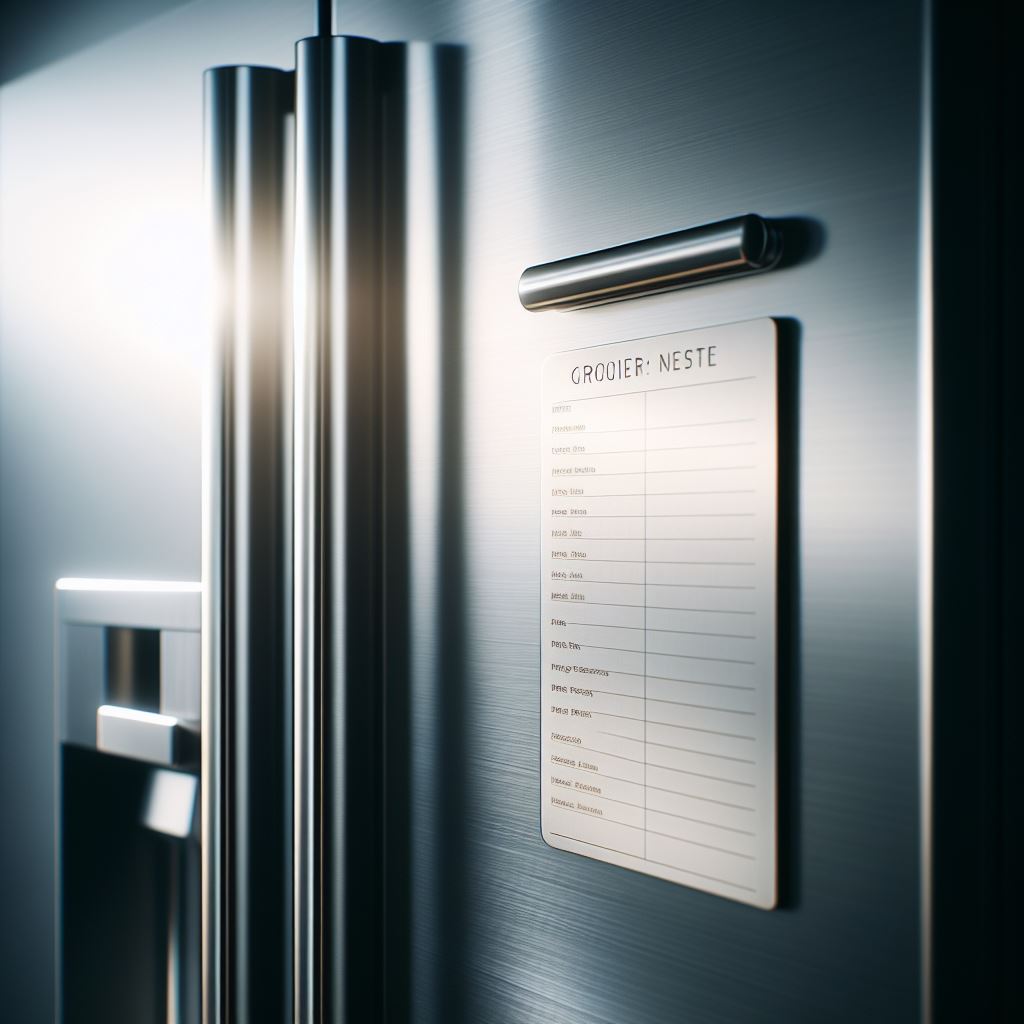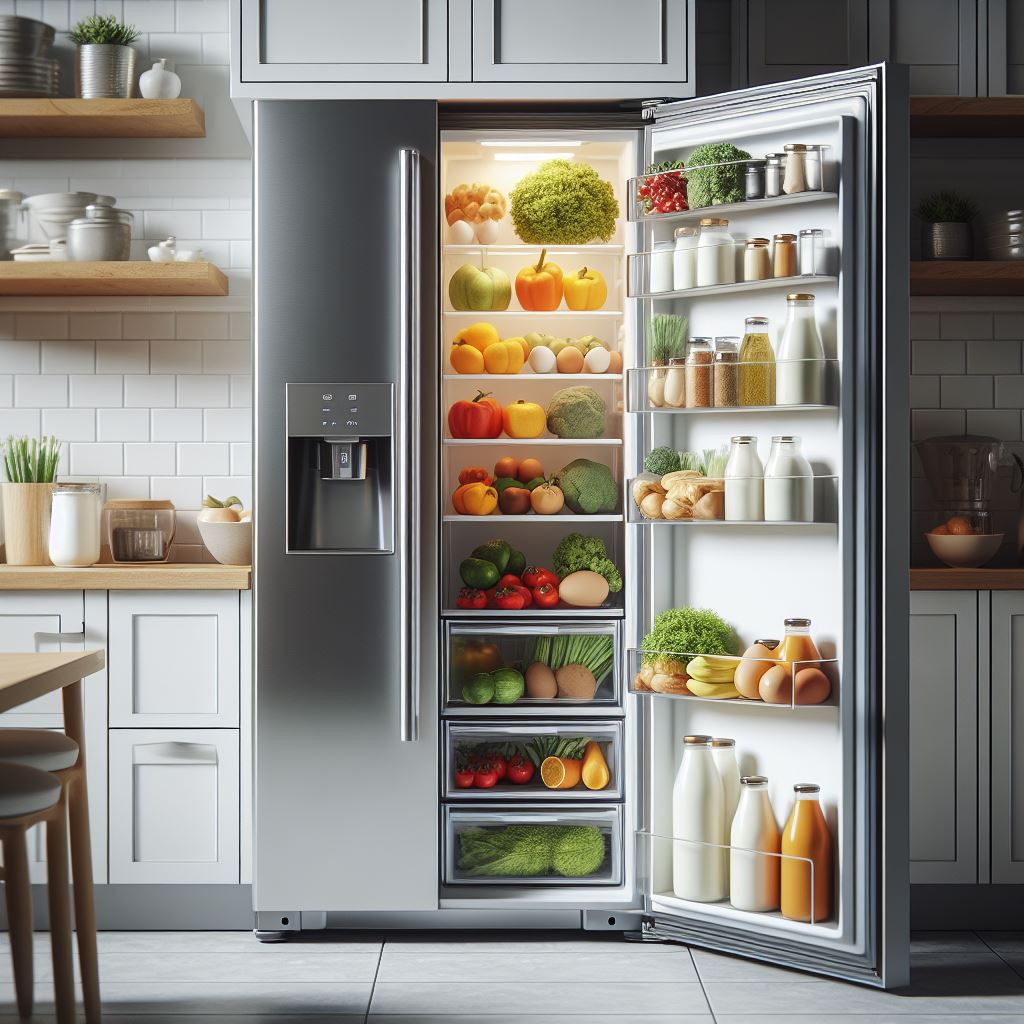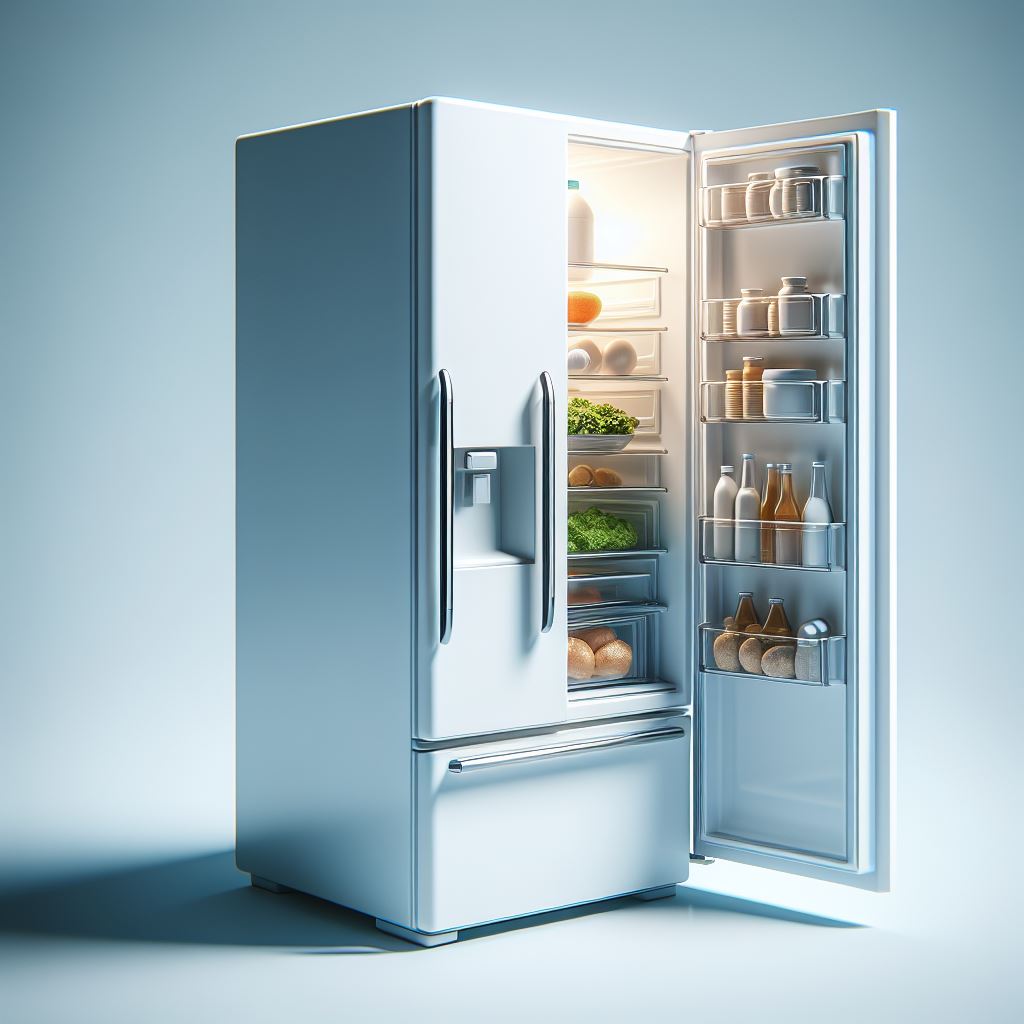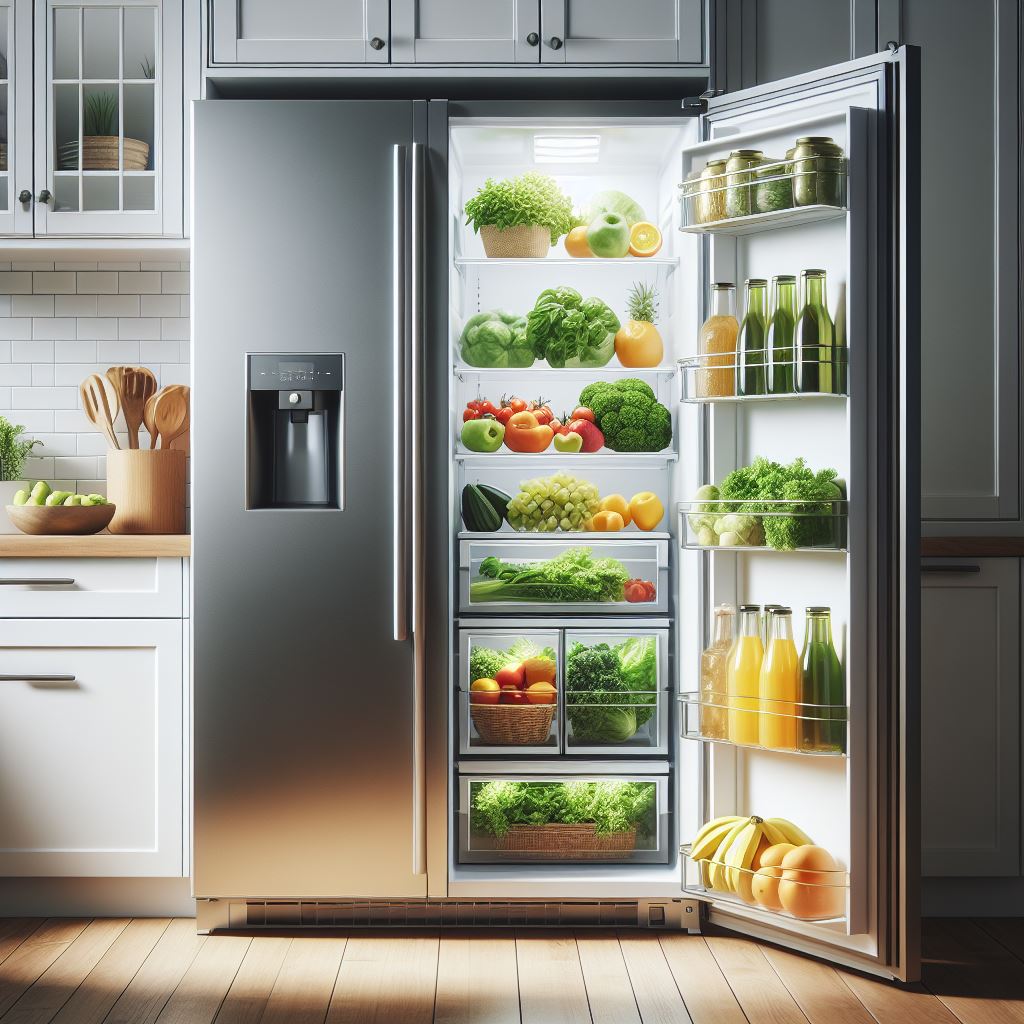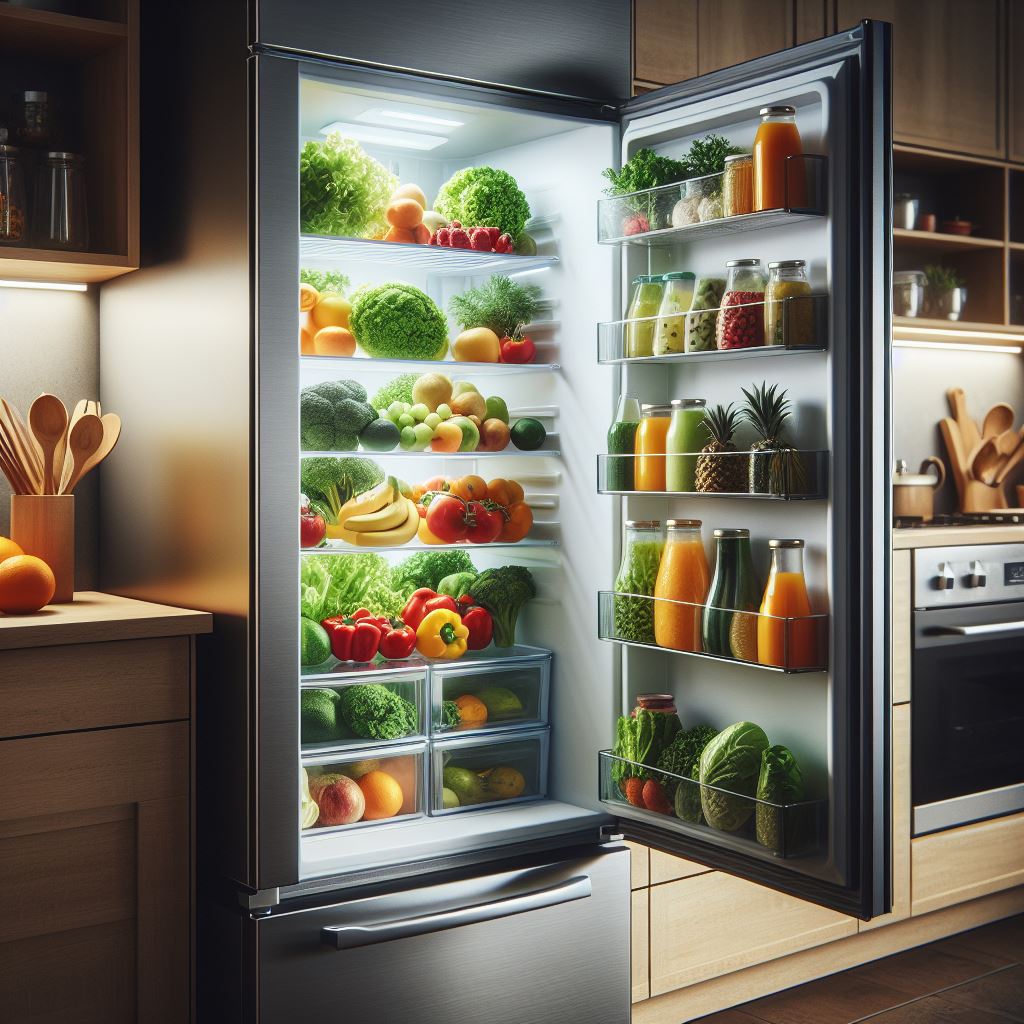When it comes to the issue of a freezer working but the refrigerator not cooling, it’s essential to understand how these two appliances work in tandem. A refrigerator and freezer are designed to maintain specific temperature ranges to preserve food effectively.
The refrigerator’s primary function is to keep the interior at a temperature between 37°F and 40°F (3°C and 4°C), while the freezer is responsible for dropping the temperature to 0°F (-18°C) or lower to freeze food.
Both the refrigerator and freezer rely on a complex system of components, including compressors, condensers, evaporators, and thermostats, to regulate temperature and humidity. When one part of this system malfunctions, it can disrupt the entire cooling process, leading to a situation where the freezer works as intended, but the refrigerator fails to cool properly.
Common Causes of Freezer Working but Refrigerator Not Cooling
Lack of Airflow Due to Blocked Vents or Fan Issues
- Blocked Vents: One of the common causes of a refrigerator not cooling while the freezer is working is blocked vents. Check the vents behind the refrigerator to ensure they are not obstructed by furniture, curtains, or other items. Maintaining clear airflow is crucial for the proper functioning of the cooling system.
- Fan Issues: The refrigerator’s fan plays a vital role in circulating air and maintaining the desired temperature. If the fan is not working correctly, it can lead to a lack of airflow and prevent the refrigerator from cooling effectively. Inspect the fan for any signs of dust buildup or damage and clean or replace it as needed.
Faulty Thermostat Leading to Improper Temperature Regulation
- Thermostat Malfunction: A faulty thermostat can be a significant contributor to the issue of a freezer working but the refrigerator not cooling. The thermostat is responsible for regulating the temperature in the refrigerator, and if it is not functioning correctly, it may not be able to maintain the proper temperature, leading to the refrigerator not cooling as expected.
- Temperature Settings: Ensure that the temperature settings in the refrigerator are correct. If the temperature is set too high, it can prevent the refrigerator from cooling effectively, even if the freezer is working correctly.
Refrigerant Leaks Affecting Cooling Efficiency
- Refrigerant Leaks: Refrigerant leaks can significantly impact the cooling efficiency of the refrigerator. Look for signs of refrigerant leaks, such as ice buildup or water pooling around the appliance. Refrigerant leaks can reduce the system’s ability to transfer heat, leading to the freezer working but the refrigerator not cooling.
- Refrigerant Recharge: If a refrigerant leak is detected, it may be necessary to recharge the system with the appropriate refrigerant to restore the cooling efficiency.
Defective Compressor Hindering Proper Cooling
- Compressor Failure: The compressor is a crucial component in the refrigeration system, responsible for circulating the refrigerant and maintaining the desired temperatures. If the compressor is defective or malfunctioning, it can prevent the refrigerator from cooling properly, even if the freezer is still functioning.
- Compressor Replacement: In the event of a compressor failure, it may be necessary to replace the compressor to restore the refrigerator’s cooling capabilities.
Damaged Door Seals Causing Air Leaks
- Door Seal Damage: Worn or damaged door seals can allow warm air to enter the refrigerator, reducing its cooling efficiency. Inspect the door seals for any signs of wear, cracks, or gaps, and replace them if necessary.
- Door Seal Replacement: Replacing damaged door seals can help ensure a tight seal and prevent air leaks, improving the refrigerator’s cooling performance.
- By understanding these common causes of a freezer working but the refrigerator not cooling, you can better diagnose and address the issue, potentially saving time and money on costly repairs.
Troubleshooting Tips
Step-by-Step Guide to Diagnosing the Issue
When faced with the problem of a freezer working but the refrigerator not cooling, a systematic approach to troubleshooting can help identify the root cause. Follow these steps to diagnose the issue:
- Check the Power: Ensure that the refrigerator is plugged in and receiving power. Verify that the circuit breaker or fuse has not tripped, cutting off power to the appliance.
- Inspect the Temperature Settings: Check the temperature settings on both the refrigerator and freezer compartments. Make sure they are set to the recommended levels for optimal cooling performance.
- Examine for Visible Signs of Damage: Inspect the refrigerator for any visible signs of damage, such as leaks, frost buildup, or unusual noises. These can indicate underlying issues that may be affecting the cooling efficiency.
- Clean Vents and Coils: Dust and debris can accumulate on the vents and coils, hindering airflow and cooling. Regularly clean these components to ensure proper ventilation and heat exchange.
- Test the Door Seals: Check the integrity of the door seals by placing a piece of paper between the seal and the door. If the paper slips out easily, the seal may be compromised and in need of replacement.
When to Seek Professional Help
While some troubleshooting steps can be performed by homeowners, certain issues may require the expertise of a professional appliance repair technician. Consider seeking professional help in the following situations:
- Complex Issues: If the problem persists after basic troubleshooting or if you are unsure about performing more advanced repairs, it’s best to consult a professional.
- Refrigerant Handling: Refrigerant leaks and recharge should be handled by trained professionals due to the potential hazards associated with refrigerants.
- Compressor Replacement: Replacing a faulty compressor is a complex task that should be carried out by a qualified technician to ensure proper installation and functioning.
By following these troubleshooting tips and knowing when to seek professional assistance, you can effectively address the issue of a freezer working but the refrigerator not cooling, ensuring the optimal performance of your appliance and the preservation of your food.
In conclusion, when the freezer is working but the refrigerator is not cooling, it can be a frustrating situation that requires prompt attention. By understanding the common causes such as airflow blockages, thermostat malfunctions, refrigerant leaks, compressor issues, and damaged door seals, you can take proactive steps to troubleshoot and resolve the issue.
Remember, regular maintenance, timely repairs, and knowing when to seek professional help are key to ensuring the efficient operation of your refrigerator. By following the troubleshooting tips outlined in this article and staying vigilant about the health of your appliance, you can maintain a properly functioning refrigerator and avoid costly repairs in the long run.
Here are 5 FAQs related to the article “Why Would the Freezer Work but Not the Refrigerator: Common Causes and Troubleshooting Tips”:
FAQ 1: Why is my freezer working but my refrigerator not cooling?
The most common reasons for a freezer working but the refrigerator not cooling are:
- Lack of airflow due to blocked vents or fan issues
- Faulty thermostat leading to improper temperature regulation
- Refrigerant leaks affecting the cooling efficiency
- Defective compressor hindering proper cooling
- Damaged door seals causing air leaks
FAQ 2: How can I diagnose the issue if my freezer is working but the refrigerator is not cooling?
To diagnose the issue, follow these steps:
- Check the power and ensure the refrigerator is receiving electricity.
- Inspect the temperature settings on both the refrigerator and freezer.
- Look for visible signs of damage, such as leaks, frost buildup, or unusual noises.
- Clean the vents and coils to ensure proper airflow.
- Test the door seals by placing a piece of paper between the seal and the door.
FAQ 3: When should I call a professional for a refrigerator not cooling issue?You should consider calling a professional appliance repair technician in the following cases:
- If the issue persists after basic troubleshooting
- If you suspect a refrigerant leak or need to handle refrigerant
- If you need to replace a faulty compressor
Attempting complex repairs without the proper expertise can be dangerous and may cause further damage to the appliance.
FAQ 4: How can I prevent the refrigerator from not cooling while the freezer is working?
To prevent this issue, follow these maintenance tips:
- Clean the condenser coils regularly to ensure proper airflow
- Check and clean the defrost drain to prevent clogs
- Inspect the evaporator coils and clean them if necessary
- Regularly inspect and replace any damaged door seals
Proactive maintenance can help extend the lifespan of your refrigerator and prevent cooling issues.
FAQ 5: What are the consequences of a refrigerator not cooling while the freezer is working?
If the refrigerator is not cooling properly while the freezer is working, it can lead to several consequences:
- Food spoilage in the refrigerator section due to improper temperature
- Increased energy consumption as the refrigerator works harder to cool
- Potential damage to the compressor or other components over time
- Reduced lifespan of the refrigerator if the issue is not addressed
Addressing the problem promptly can help prevent these consequences and ensure the efficient operation of your appliance.

